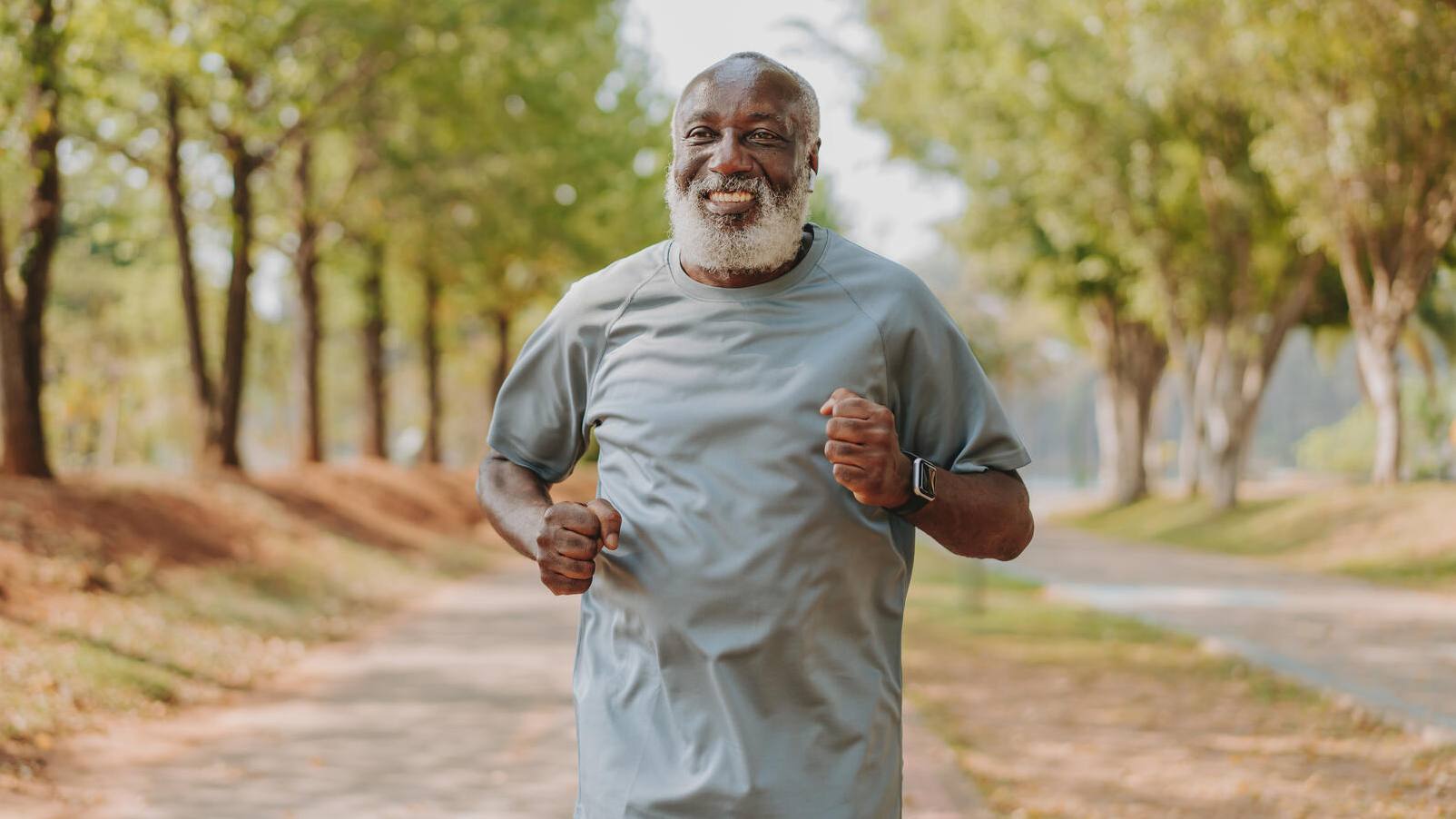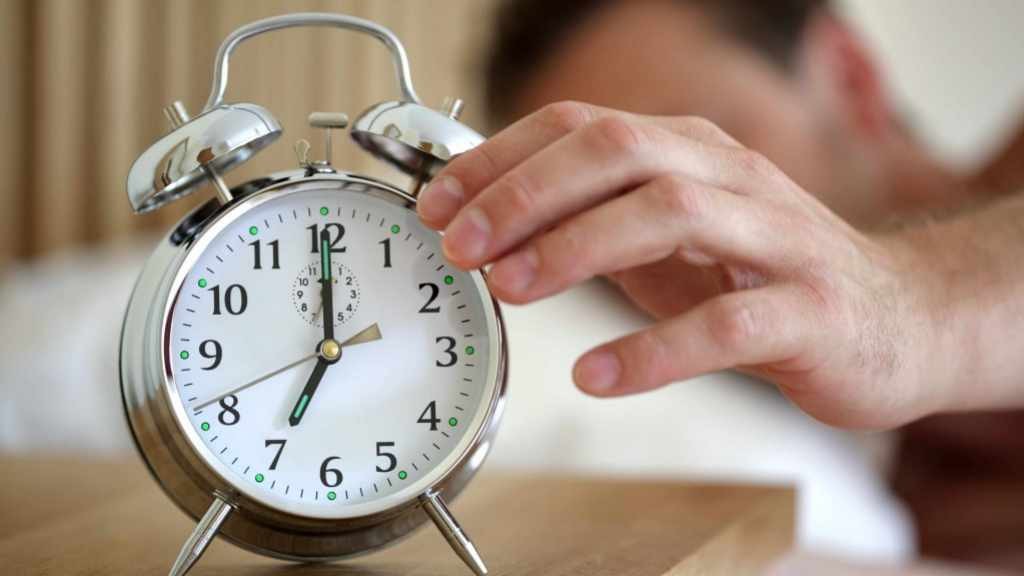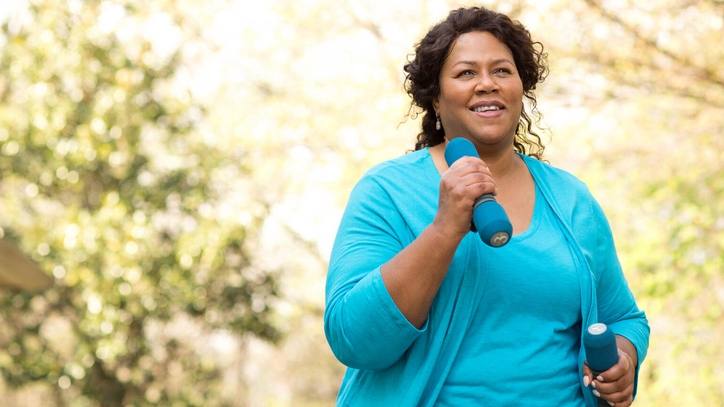-
Health & Wellness
Exercise timing conundrum: Optimal workout timing

It's a long-standing discussion for all who want to get into shape. When is the best time to exercise? According to Future Member, about 41% of workouts take place between 7–9 AM or 5–7 PM.
"The debate is intriguing with proponents of both morning and evening workouts citing various benefits," says Andrew Jagim, M.D., director of sports medicine research at Mayo Clinic Health System in Onalaska. "From increased energy levels to enhanced performance or greater weight-loss benefits, health experts delve into the science behind exercise timing to shed light on the optimal approach for achieving fitness goals."
Morning workouts

For morning exercisers, the allure of starting the day with a workout is undeniable.
"Getting your workout in and completed before you even begin your day can provide a sense of accomplishment and set a positive tone for the day ahead," explains Dr. Jagim. "The post-workout release of endorphins and the satisfaction of accomplishing something before 9 a.m. can serve as a powerful ego boost."
Perhaps most importantly, morning workouts eliminate the need to worry about finding time for exercise later in the day because it's often the only time of the day that hasn't been previously committed to work, social events or family activities.
"By completing your workout in the morning, you free up your afternoons and evenings for other activities, such as cooking dinner, socializing or simply relaxing," Dr. Jagim notes. "This sense of freedom and flexibility can alleviate stress and enhance overall well-being."
For people embarking on morning workouts, strategic pre-exercise nutrition can make a significant difference in energy levels and performance.

"Starting the day with a balanced breakfast containing carbohydrates, protein and healthy fats can provide the necessary energy to power through a morning workout," Dr. Jagim advises. "Opt for whole-grain cereals, Greek yogurt with fruit, and allow sufficient time for digestion to prevent discomfort and optimize nutrient absorption. Or, if you’re not hungry in the mornings or don’t have time, something simple like an energy bar can suffice."
Evening workouts
However, for some people, waking up early to exercise is the last thing they feel like doing, and, therefore, the case for evening workouts is more appealing.

"Your body's ability to perform peaks in the afternoon and early evening, with optimal muscle function, strength and endurance," states Jake Erickson, D.O., sports medicine, Mayo Clinic Health System in Onalaska. "During this time, your body has time to wake up a bit by moving around throughout the day, you've likely gotten a meal or two in to ensure adequate energy available to use during the workout, and you may be more mentally alert."
Additionally, oxygen uptake kinetics are more favorable in the evening, allowing for more efficient utilization of resources during exercise. "Your body is primed for performance in the late afternoon and early evening, making it an ideal window for high-intensity activities like interval training or speed work," Dr. Erickson explains.
Conversely, people opting for evening workouts face unique considerations in balancing time commitments and mental energy.
"After a long day at work or shuttling around the kids all day, it can be hard to muster the motivation to go to the gym and put forth a lot of physical effort during a workout," adds Alecia Gende, D.O., sports medicine and emergency physician at Mayo Clinic Health System in Onalaska. "Additionally, intense physical activity in the evening may trigger a stress response and cause difficulty falling asleep or waking in the middle of the night if your cortisol is disrupted and released at an inopportune time. If you have to get a workout in before sleep it would be best to be lower intensity such as a walk or lighter lifting session. If that's the case moving the workout earlier in the day might be more beneficial for them."
Lastly, if you choose to work out later in the day, it's important to ensure you are getting adequate nutrients throughout the day to make sure you have enough fuel available to support the workout, in addition to eating a well-balanced meal after the workout.
"After a long day, it's essential to refuel the body with carbohydrates and protein," Dr. Jagim suggests. "Consuming a nutrient-rich meal within two hours of your workout can facilitate muscle recovery and enhance adaptation to training. Consider options such as grilled chicken with quinoa and vegetables, or a protein-packed stir-fry to refuel and replenish after an evening workout."
What about a midday workout
Whether working or at home, most people hit the dreaded afternoon slump around 3 p.m. A study of more than 90,000 people recently found working out in the afternoon reduces the risk of heart disease or early death more than physical activity in either the morning or afternoon. The benefits of afternoon exercise for longevity were most pronounced for men and the elderly.
"Morning workouts may not be ideal for shift workers or those working late or staying up later in the evening," says Dr. Gende. "In that case, it may be more prudent to allow more sleep in the morning and perform a mid-day workout or early afternoon workout before your next evening shift or late night."
According to a OnePoll survey, the most effective activity for people for an afternoon workout is getting up and going for a walk, which is a great way to perk up both your mind and body.
Avoid just staying on the couch
For those who just say I don't have any time available, there's always time.
"I suggest scheduling a “snack competing” activity," says Dr. Erickson. "This can be a good excuse to flip the script and for people who know they may choose to sit on the couch and snack in the evenings. They can use that time to grab a workout of some kind instead. This can lead to a big swing in people’s fitness as they consume less calories by avoiding the typical snacking time and burn more calories by the workout."
For people engaging in prolonged or intense exercise sessions (more than 90 minutes), mid-workout nutrition can play a pivotal role in sustaining energy levels and preventing fatigue. Dr. Jagim recommends incorporating carbohydrate-rich snacks during extended workouts to maintain endurance and performance.
Finding the optimal balance
So, what is the best time to exercise? There are even benefits to splitting up a workout into short 10-minute mini-sessions throughout the day if you don't have time to get a full 60-minute session in.
One thing is clear; even though science may seem contradictory, the importance of regular physical activity cannot be overstated.
"Ultimately, the best time to exercise is the time that fits into your schedule and aligns with your energy levels and preferences," concludes Dr. Jagim. "Consistency and adherence to a regular exercise routine are key and far more important regardless of the time of day you choose to work out. Any time of day is better than no exercise in reducing the risk of death from any cause, heart disease, and cancer. Experimentation and self-awareness are essential in determining the ideal timing toward optimizing exercise performance, recovery and overall well-being."
Related posts:
- Mayo Clinic Minute: Benefits of an active workstation
- Mayo Clinic Minute: Walking is a step toward heart health
About Mayo Clinic Health System
Mayo Clinic Health System consists of clinics, hospitals and other facilities that serve the healthcare needs of people in Iowa, Minnesota and Wisconsin. The community-based healthcare professionals, paired with the resources and expertise of Mayo Clinic, enable patients in the region to receive highest-quality physical and virtual healthcare close to home.
Media contact:
- Rick Thiesse, Mayo Clinic Health System Communications, thiesse.ricky@mayo.edu
Related Articles







